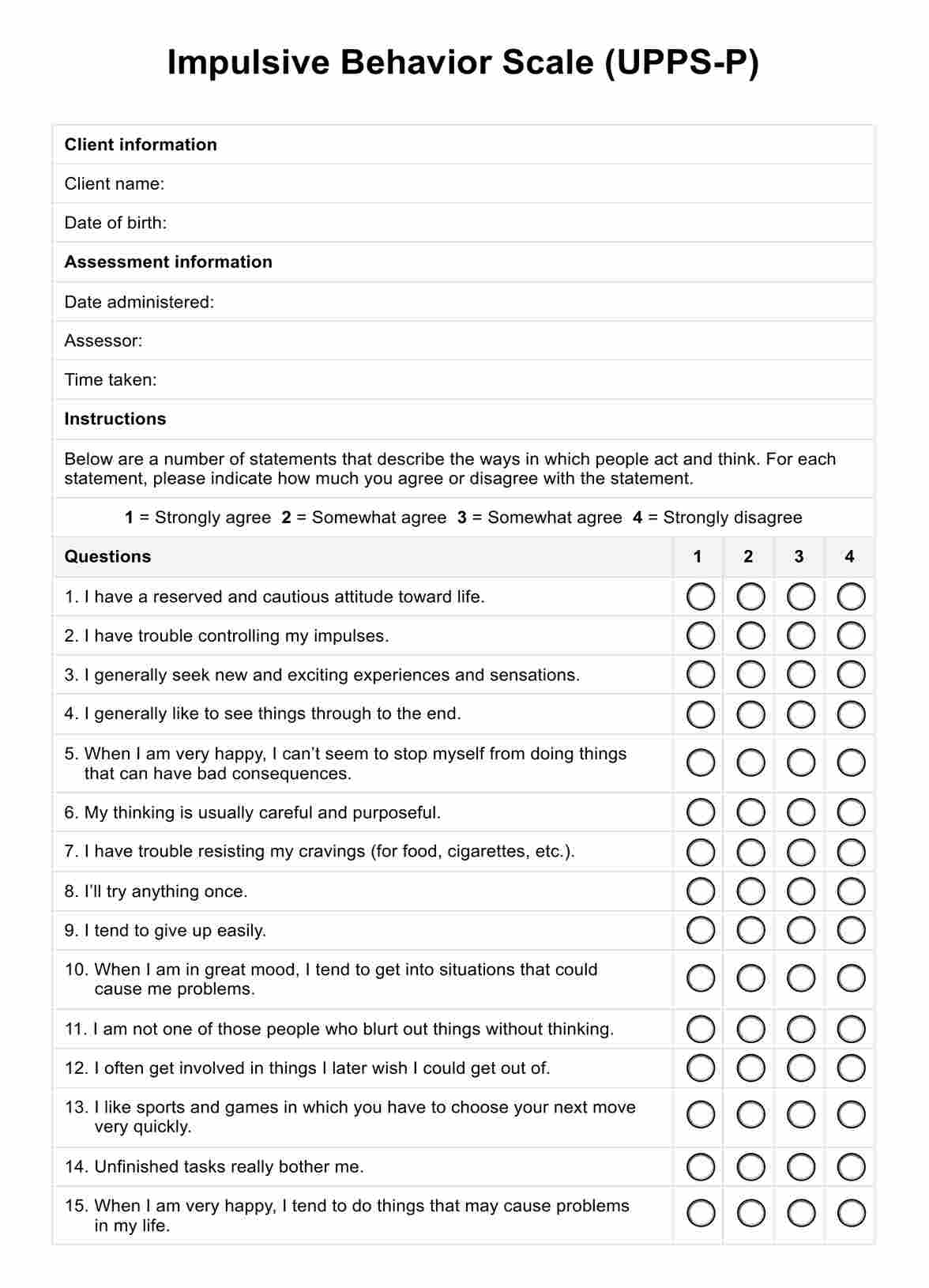Mental health professionals, researchers, and human resource professionals all use the UPPS Impulsive Behavior Scale.

Impulsive Behavior Scale (UPPS)
Unlock comprehensive insights into impulsivity with UPPS Impulsive Behavior Scales. Ideal for professionals in psychology, therapy, and research settings.
Impulsive Behavior Scale (UPPS) Template
Commonly asked questions
The UPPS Impulsive Behavior Scale is used when a comprehensive understanding of an individual's impulsive behaviors is required for diagnosis, treatment planning, or research purposes.
The UPPS Impulsive Behavior Scale is a self-report tool where individuals respond to a series of statements relating to impulsive attitudes and behaviors. The summed scores provide insight into different aspects of the individual's impulsive personality traits.
EHR and practice management software
Get started for free
*No credit card required
Free
$0/usd
Unlimited clients
Telehealth
1GB of storage
Client portal text
Automated billing and online payments











